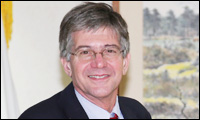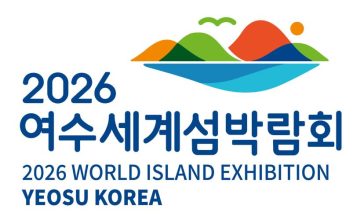
U.S. President Barack Obama is likely to cooperate tightly with the next Seoul administration on efforts toward eventual unification of the peninsula, a former U.S. envoy said Tuesday.
The remark from James Steinberg, deputy secretary of state under Obama from 2009 to 2011, came as South Korean presidential candidates say they will increase engagement with the North should they win the Dec. 19 poll.
“Though I am no longer part of the administration, I am confident that President Obama stands ready to work with whomever you elect to lead South Korea to achieve that goal (of unification),” Steinberg said during a unification forum in Seoul.
The election and an expected shuffle in Obama’s administration have raised concerns over possible gaps between the sides over how to deal with the nuclear-armed North.
Washington, in an approach dubbed “strategic patience,” has prioritized the alliance with Seoul in dealing with the North, backing President Lee Myung-bak’s tough, reciprocity-based policy.
Steinberg underlined the importance of unification.
“Patience is a tactic, but it is not a strategy,” he said, adding “only the peaceful unification of the Korean Peninsula can provide a lasting basis for peace and stability on the peninsula and beyond.”
Analysts say appetite in Washington for engagement with North Korea, which angered the administration with its long-range rocket launch in April, is low but that this could change if the South’s new president can make headway.
The two liberal candidates, Moon Jae-in and Ahn Cheol-soo, who say they will merge their candidacies, advocate a fulsome reprisal of North-South engagement, while conservative Park Geun-hye aims to build trust while maintaining a tough deterrence posture.
The Koreas remain in a technical state of war as the 1950-53 Korean War ended in an armistice not a peace treaty. While a joint declaration in 2000 stipulates that the two Koreas will “resolve the question of reunification,” political and military tensions have blocked progress.
Steinberg, a Syracuse University professor, said unification would require intense diplomacy with neighboring countries, citing China which has “a unique, albeit complex, relationship” with the North.
Meanwhile, Unification Minister Yu Woo-ik said at the forum that the shifting political landscape should compel regional players to more actively encourage unification.
“Each nation should break from the passive notion of managing to maintain the status quo and keep the two countries divided,” Yu said, adding that unification would potentially denuclearize the peninsula and boost regional economic cooperation.
“The North should also stop hesitating and begin changes,” Yu said, calling on the Kim Jong-un regime to take denuclearization steps.
He underscored efforts by the Lee Myung-bak administration to raise awareness of unification through educational initiatives and help programs for North Korean defectors. It has also started a “unification pot” to collect funds for unification, though the North slams this as a provocative act.
“Before and after this year, leadership changes are underway in the neighboring countries of the Korean Peninsula, as well as South and North Koreas,” he said, calling for efforts to proactively cope with the rapidly changing security situation surrounding the Korean Peninsula. <The Korea Times/Kim Young-jin>



